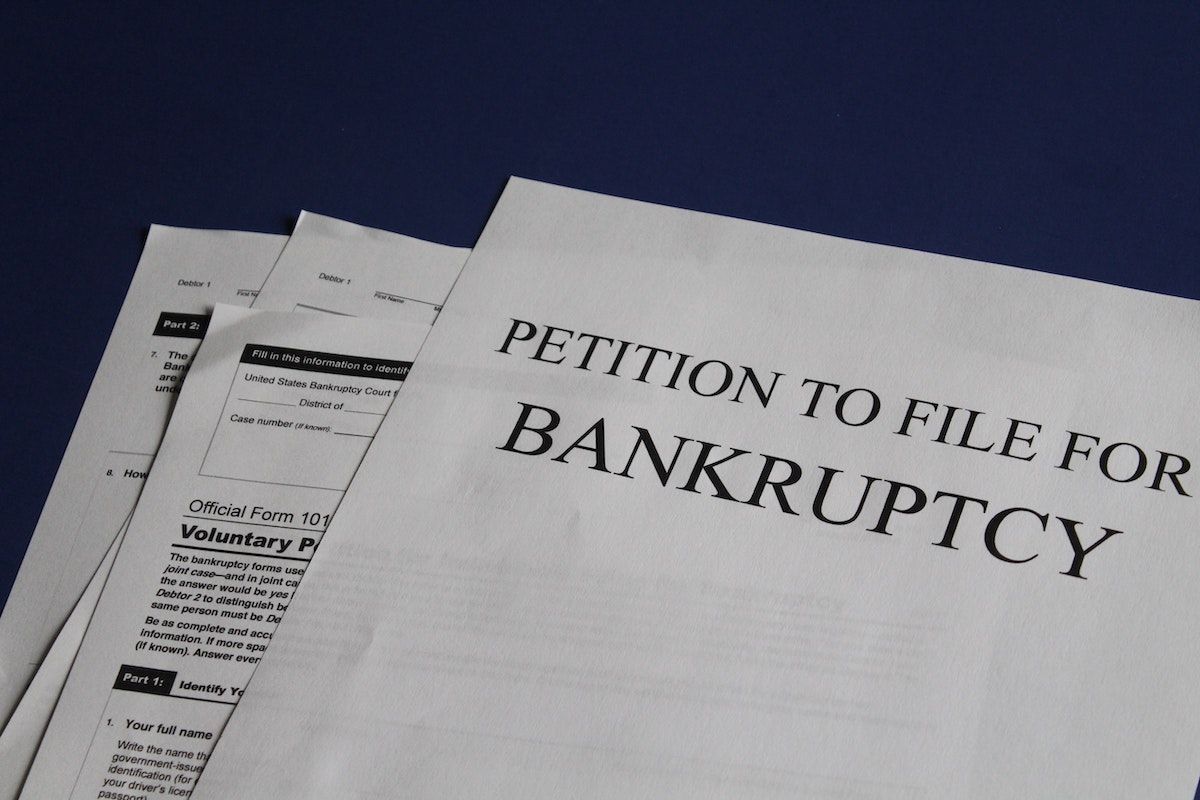Paces Ferry Wealth Advisors, LLC is a registered investment advisor with the U.S. Securities and Exchange Commission (“SEC”). This material is intended for informational purposes only. It should not be construed as legal or tax advice and is not intended to replace the advice of a qualified attorney or tax advisor.
Why Bankruptcy Can Sometimes Be the Right Option for Your Business

If you can get past the stigma, bankruptcy can be a vital lifeline.
Running a business is always a challenge, and it’s been made more so in recent months as stimulus aid for COVID-19 begins to run out for many struggling small business owners. If you find yourself in this boat and you are unsure of your options for survival, know that there is a way forward. If you’re unsure how to stay afloat and avoid closing your doors for good, bankruptcy may be the right option for you.
Bankruptcy may seem like a frightening concept, but it can offer a struggling small business the opportunity to reorganize, oftentimes without the need to lay off employees or even close temporarily. In this way, it can preserve your relationships with vendors and customers, too. Of course, there’s a certain stigma around bankruptcy, which makes many business owners reticent to choose this option, but it could be key to your business’ survival during this pandemic.
How Bankruptcy Works
There are two common types of bankruptcy, the first of which is Chapter 7. In this variation of business bankruptcy, a trustee will liquidate all of your business assets and the proceeds will be used to pay as many creditors as possible. Oftentimes, businesses close at the end of Chapter 7 proceedings, making it a good option for those who are ready to walk away.
Conversely, Chapter 11 allows a business to restructure in order to remain open. In these proceedings, a bankruptcy court will need to approve a business reorganization plan designed to pay down debt. Financial obligations may be restructured, payment terms for existing debts may be modified, or some business assets may be sold to satisfy creditors. With Chapter 11, your business can remain open and operational throughout the proceedings under the supervision of a bankruptcy trustee. Once all debt payments are made according to the court-approved reorganization plan, you can seek to have any remaining unsecured debts discharged. It should be noted that there are considerable time and expense involved in Chapter 11 proceedings, which may make it impractical for some businesses.
SEE ALSO: Business Loans: What You Need to Know to Get the Right One
Another Option: The Small Business Reorganization Act of 2019
If traditional Chapter 11 proceedings aren’t a practical solution for your business, you may find relief through the Small Business Reorganization Act of 2019 (SBRA). This is sometimes referred to as Subchapter V, and it established a more streamlined Chapter 11 process for small businesses, in particular.
Under the SBRA, a debtor is released from some of the more costly requirements found in Chapter 11. For example, you won’t be required to prepare a disclosure statement and a committee of creditors won’t be appointed unless the court orders one for cause. To discourage contested hearings, the SBRA also allows only the debtor business itself to file a plan of reorganization.
There is also an option to fast-track your business bankruptcy using the SBRA. To do so, an initial status conference will have to be held within 60 days of filing your bankruptcy petition. Then, you must file a Chapter 11 reorganization plan within 90 days of filing. A standing trustee will be appointed to oversee your case and facilitate a reorganization plan you agree to.
The SBRA also made another small business-friendly change to Chapter 11 proceedings by eliminating the absolute priority rule. Under traditional Chapter 11 proceedings, this rule required that a reorganization plan be approved by all classes of creditors in order for the business to retain its ownership interest. Under SBRA, however, equity owners can maintain their ownership as long as the plan is deemed “fair and equitable.”
In another helpful change, the SBRA also makes it easier for you to confirm a reorganization plan even over the objections of creditors. Most often, your plan will be confirmed as long as it requires that all of your projected disposable income will be used to make planned debt payments for the ensuing three to five years.
SEE ALSO: Business Loans: Small Business Checklist: How to Assess Your Financial Wellness
The SBRA in the Time of COVID-19
In response to the ongoing pandemic, officials have made the SBRA available to a wider range of debtors, both businesses and individuals. Through the Coronavirus Aid, Relief and Economic Security Act (CARES Act), the SBRA language was amended with a temporary increase of the debt threshold. The usual threshold is $2,725,625, but it is temporarily increased to $7.5 million for new cases filed through March 27, 2021.
A Final Note on Choosing Bankruptcy for Your Small Business
Not only are we living through an unprecedented time in general, but if you’re a small business owner, you’re also facing the daunting task of determining how to best move forward to preserve your business and keep your doors open. Mounting debt and declining revenues can easily combine to leave you feeling overwhelmed and hopeless, and you may feel like shuttering your business is your only option. While it’s possible that bankruptcy – especially Subchapter V – may be the right move for you, you should carefully weigh all avenues of relief before making any big moves. Discuss your options with your financial advisor so that you can choose a path that leaves your business in a stronger position once the pandemic is over.